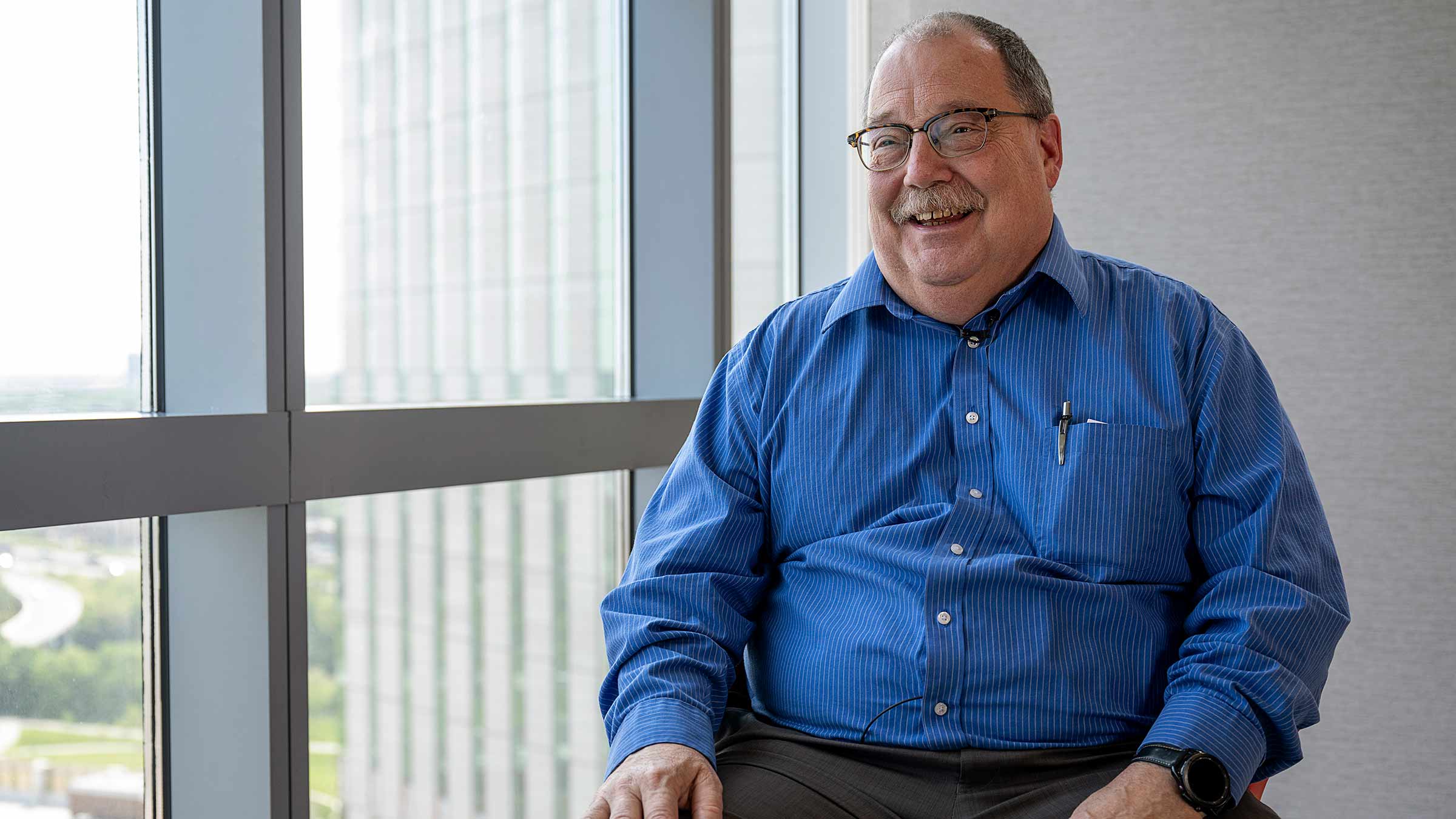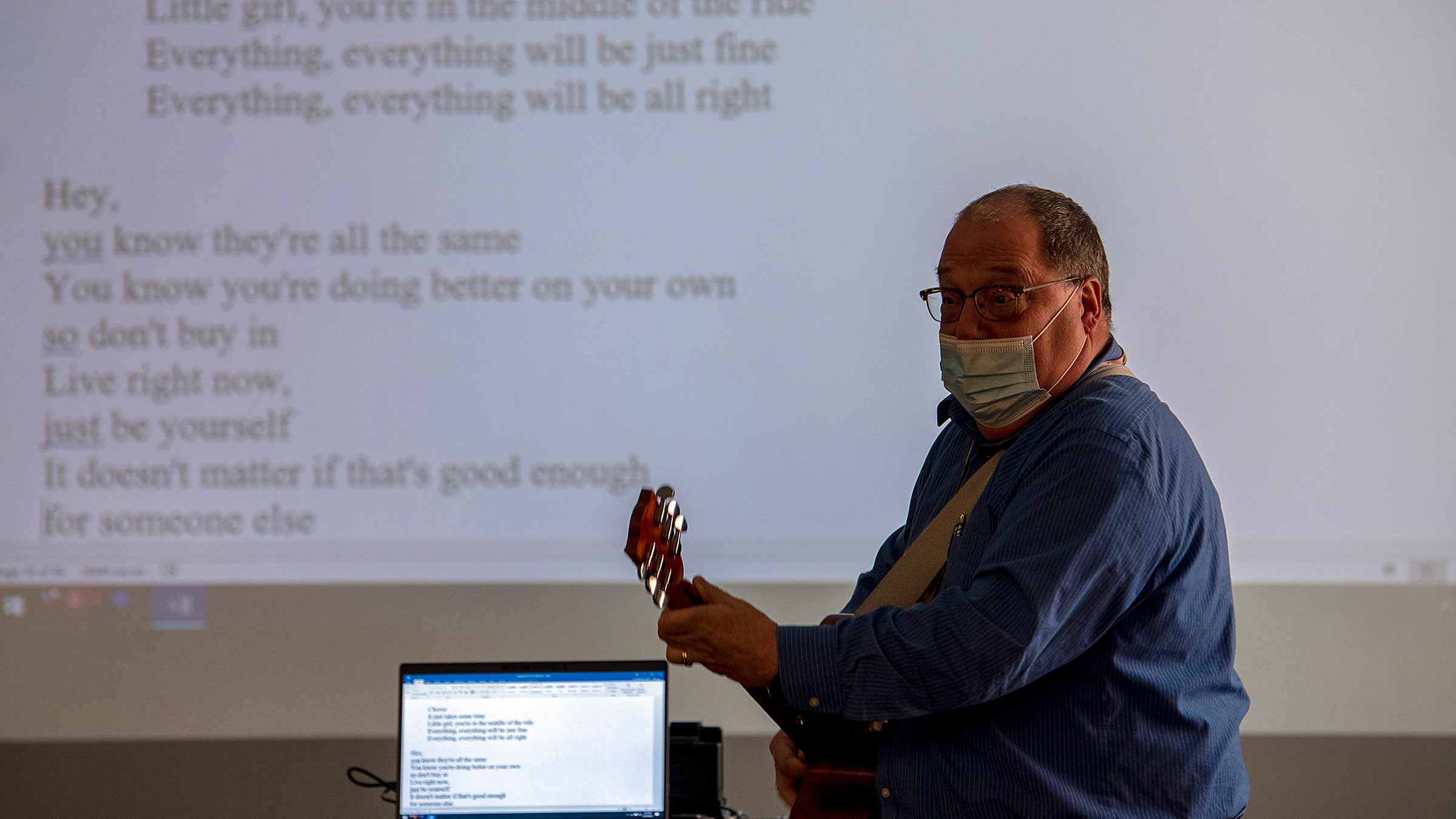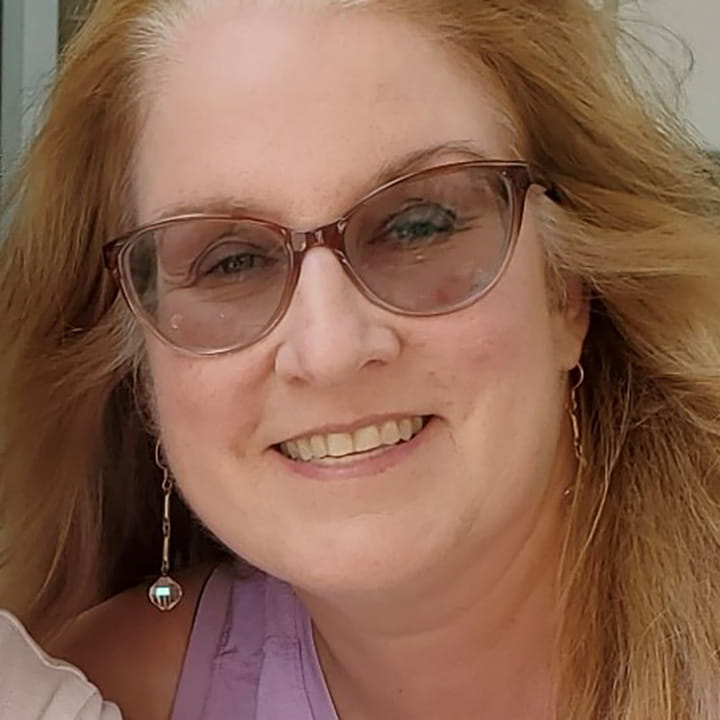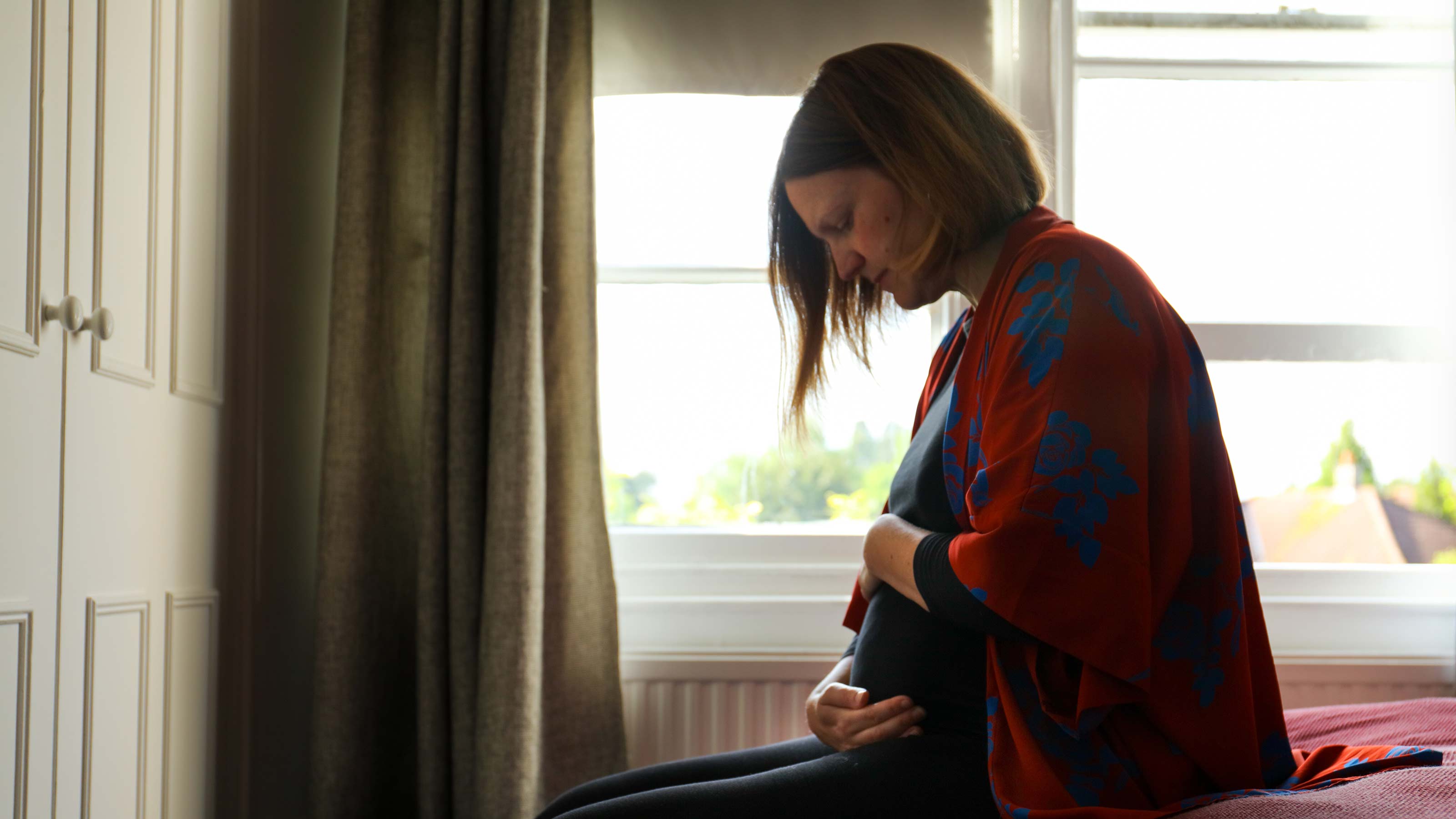Singing chaplain brings comfort, healing to patients in Harding Hospital mental health facility
When Rev. Chris Ciampa interviewed to be the chaplain at The Ohio State University Wexner Medical Center’s Harding Hospital, the first question was: “Do you play guitar?”
“I thought, ‘Well, that’s a strange question to ask in the very first question of a chaplaincy interview,” Ciampa recalls of that interview 10 years ago at the inpatient psychiatric facility. “But I said, ‘Yes.’ And I thought, ‘Well, that must mean that this is a really important part of the concept of chaplaincy.’”
Carrying on a legacy
For many years, a singing chaplain has been providing comfort and solace to patients and staff at Ohio State Harding Hospital, even before the university bought the facility and moved it from its original location in Worthington, Ohio. The previous chaplain, Rev. George Gibbs, regularly led sing-alongs with patients during his 31-year tenure, Ciampa says.
“When George was retiring, he approached me and asked if I’d be interested in doing this,” Ciampa says. “I had to think about it, because this is a different type of chaplaincy. Obviously, I do more than just sing and play the guitar for Harding Hospital.”

Answering the call to do more
Ciampa, who was born and raised in Windber, a small town in Pennsylvania coal country, didn’t always know that he wanted to be a chaplain. After earning a bachelor’s degree in music education from Otterbein University, Ciampa taught music, worked with computers and dabbled in business and accounting.
But the work wasn’t fulfilling. He felt a calling to do something more.
“I didn't experience a voice or anything like that. But it was just like: ‘This isn't worth it. I’ve got to do something that's worth it.’ I come from a family of pastors — my dad, my grandfather, my father’s four brothers are all pastors. So, I really tried not to be one. But, ‘Oh, well,’” Ciampa says with a laugh.
He went on to earn a master of arts degree in alcoholism and drug addiction ministry and a master of divinity degree, both from the Methodist Theological School in Ohio.
Since arriving at the Ohio State Wexner Medical Center in 2010, he worked mostly with seriously ill or injured patients and their families in the Emergency Department and the Medical Intensive Care Unit. Yet the shift to helping patients with mental health problems was attractive to him.
“I enjoy focusing specifically on pastoral care and just caring for people where they are,” Ciampa says. “Just to be able to focus on taking care of people is kind of where I seem to fit in best.”
Now he leads groups for patients at Ohio State Harding Hospital on topics of faith and values and resilience, while also providing chaplain services to the Emergency Department for codes and traumas.
“It’s clear, over the many years that music has been provided to patients at Harding, that patients really enjoy them. The sing-alongs uplift the patients mentally, emotionally and physically,” says Imani Jones, director of the Department of Chaplaincy and Clinical Pastoral Education at the Ohio State Wexner Medical Center.
Promoting healing through song
When Ciampa took over the reins from Gibbs, he continued the sing-along tradition. Nowadays, he can be found leading daily sing-alongs with his acoustic guitar on various floors of the hospital. He’s also a freelance musician who often plays with local bands around Columbus.
“Being hospitalized for mental health issues is tough. Working to get better is tough. It’s hard work to be in recovery,” Ciampa says. “So, at the end of the day, during the sing-alongs we can just have some fun.”
As a lover of music and lifelong musician, Ciampa taps into an integral aspect of who he is when he’s facilitating sing-alongs with patients.
“Through music, Chris can bring his full self to the moment and relate to patients in a way that is genuinely authentic and meaningful to who he is as a person. As Chris connects with patients through music, he also connects to a deep aspect of who he is. This type of integration is necessary for providing optimal spiritual care,” Jones says.

The pandemic brings new challenges to connecting with patients
As with many other health care professionals, the worldwide COVID-19 pandemic forced Ciampa to change how he led sing-alongs. Before the pandemic, he would pass out song books with the lyrics for patients to use while singing.
But with the fear of spreading the coronavirus and other germs, this was no longer possible. Instead, Ciampa switched to using a projector to show the lyrics on a wall, a new practice that continues. He also started wearing a mask while singing — a practice that, while not ideal, is something he’s adjusted to as a way to protect patients.
“But you can’t whistle in a mask,” he jokes. “My father used to always say: ‘There’s the ideal and then there’s the deal.’”
In this hospital setting, lyrics can take on a deeper meaning, such as these from the song “The Middle” by Jimmy Eat World:
Hey, don't write yourself off yet
It’s only in your head you feel left out or looked down on
Just try your best, try everything you can
And don’t you worry what they tell themselves when you’re away
It just takes some time
Little girl, you’re in the middle of the ride
Everything, everything will be just fine
Everything, everything will be alright, alright
“We find strength mentally, physically, spiritually and in all sorts of places, you know, and music is one of ‘em. People have been known to say, ‘Oh, that’s, that’s my theme song!’ ‘Lean On Me’ is one of my favorites,” Ciampa says. “It’s such a cool song because it doesn’t say I’m wonderful, I’m perfect, or I’m a nobody. It just says, you know, I’m here for you if you need me. And that’s a very cool thing for people to remind themselves.”
He’s quick to point out that he’s not a music therapist, and this is not music therapy.
Sometimes, patients don’t even realize that he’s the chaplain. To them, he’s just the guy with the guitar. But as they sing along to 182 different songs ranging from classic hymns to the Beatles and Green Day, they often start to open up more to Ciampa when he’s not playing the guitar.
“This is relationship building,” Ciampa says. “They’re more willing to share their story with me.”

Looking for confidential mental health treatment in a caring environment?
Ohio State's behavioral health team provides comprehensive care backed by one of the nation's leading academic health centers.
Learn more or make an appointment








